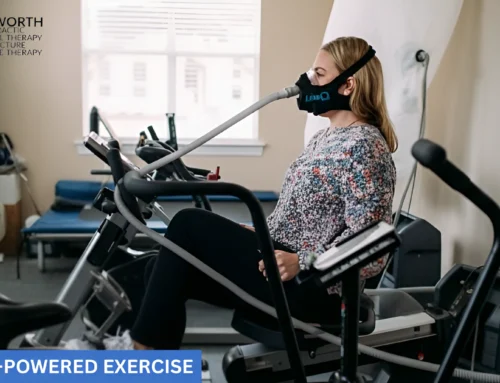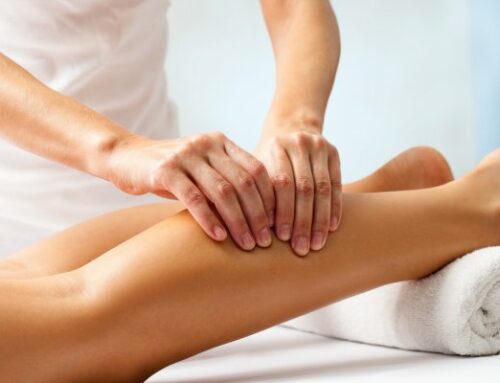🌿Recovery Isn’t a Luxury—It’s the Path to Healing
In today’s world, where busyness is praised and exhaustion is normalized, recovery has been wrongly labeled as indulgent. We hear it all the time:
“I’ll rest when things slow down.”
“I can push through it.”
“I just need to toughen up.”
But here’s the reality: ignoring your body’s need to recover doesn’t make you stronger—it makes you slower to heal, more prone to injury, and further from your health goals.
🏅 Recovery isn’t a reward you earn—it’s a necessity your body demands.
At Ashworth Chiropractic, Physical Therapy & Acupuncture, we see patients every day who are tired, stiff, inflamed, or struggling to bounce back—not because they’re doing too much, but because they’re not allowing enough time or space for recovery. Inflammation lingers. Muscles stay tight. Sleep quality drops. Focus wanes. Mood suffers.
And the worst part? Most people blame themselves for not pushing harder.
But real wellness doesn’t come from grinding nonstop. It comes from knowing when to pause—strategically, intentionally—to let your body do what it was designed to do: heal.
Recovery is when:
-
Muscles rebuild
-
Nervous systems recalibrate
-
Oxygen reaches inflamed tissues
-
Hormones stabilize
-
The immune system resets
-
Mental clarity returns
Whether you’re recovering from travel, a tough workout, a flare-up of pain, or just everyday stress, taking time to recover isn’t a sign of weakness. It’s smart, proactive, and foundational to long-term health.
🔁 Recovery Through the Ages
This isn’t a new idea. Ancient cultures knew the power of recovery long before we had research studies and wearable tech to prove it.
🏛️ Greek athletes—some of the earliest elite performers—built recovery directly into their daily training. They didn’t just lift, wrestle, or run. They bathed in mineral springs, practiced deep breathing, received massage, prioritized rest, and followed strict sleep rituals. Recovery wasn’t an option—it was essential for performance, longevity, and resilience.
🌿 In Traditional Chinese Medicine, health is seen as a balance between yin and yang—activity and rest, effort and ease. When one outweighs the other, imbalance leads to dysfunction. That’s why rest, acupuncture, breathwork, and movement like tai chi were all integrated into healing protocols for warriors, scholars, and laborers alike.
👐 Early chiropractic and naturopathic medicine emphasized the importance of spinal alignment, circulation, and reducing nervous system stress—all essential elements of recovery. These therapies aimed to support the body’s natural healing rhythm, not override it.
But this ancient wisdom didn’t fade—it simply evolved.
🏅 Today’s top athletes rely on the exact same principles. Behind every strong performance is a well-planned recovery strategy:
-
Active recovery days
-
Mindfulness and breathwork
Ask any strength coach or sports physiologist, and they’ll tell you:
You don’t grow muscle in the gym—you grow it during recovery.
The gym stimulates the process, but the healing and rebuilding happen afterward—when your body has oxygen, nutrients, sleep, and time.
The same goes for injury recovery, stress, and inflammation. Pushing harder isn’t always the answer. Sometimes, recovering smarter is what unlocks the next level of healing or performance.
🚨 Signs You Might Need a Recovery Reset
Your body has a quiet way of asking for help—especially when it’s not getting the rest, oxygen, or support it needs. If you’ve been pushing through life without pause, watch for these subtle (and not-so-subtle) signs that your system is overdue for a recovery boost:
🧠 Brain Fog or Sluggish Energy
You feel like you’re moving through molasses. Words don’t come easily. Focus is scattered. You need extra caffeine just to get through the day. These can all point to low oxygenation, poor sleep quality, or mitochondrial fatigue.
😩 Persistent Muscle Soreness or Stiffness
If your muscles stay sore long after a workout—or you’re waking up stiff even without intense activity—your body may be stuck in a state of chronic inflammation or lacking the tools it needs to repair and reset.
🌙 Poor Sleep or Trouble Staying Asleep
Sleep should leave you refreshed. If you’re tossing and turning, waking up tired, or can’t fall into deep rest, it may be a sign your nervous system is dysregulated or your recovery hormones (like cortisol or melatonin) are out of sync.
🔥 Lingering Inflammation or Swelling
Whether it’s joint pain, digestive bloating, or an old injury that just won’t calm down, ongoing inflammation can be your body’s way of saying, “I haven’t had time to heal.”
✈️ Feeling Drained After Travel or Stress
A weekend away leaves you more exhausted than when you left. Stressful weeks wipe you out for days. Your system may be stuck in “fight or flight,” and in need of help shifting back into repair mode.
💪 Slow Workout Recovery or Declining Performance
If you’re hitting the gym but not seeing gains—or feeling weaker instead of stronger—your recovery window might be compromised. Muscle repair, oxygen delivery, and nutrient replenishment could all be lacking.
😤 Mood Swings, Irritability, or Feeling “Off”
Sometimes recovery isn’t just physical. If you’re emotionally snappy, anxious, or disconnected from your usual self, your nervous system and hormones might need time and support to rebalance.
🩺 You’re “Fine”… but Not Really
There’s nothing technically wrong, but you just don’t feel like yourself. That’s often the body’s early signal that it’s stuck in low-grade dysfunction and craving a reset.
If even one or two of these sound familiar, it’s not a sign of weakness—it’s your body waving a red flag.
💡 Recovery isn’t about doing less. It’s about doing what’s necessary to feel your best.
🛠️ How to Support Recovery
Recovery doesn’t just happen on its own—it’s something you can intentionally support with the right tools, habits, and therapies. Whether you’re coming off a tough week, travel, a workout, or an injury, here are some effective ways to help your body bounce back faster and feel better longer:
💨 EWOT (Exercise with Oxygen Therapy)
Think of this as a cellular recharge. In just 15 minutes, exercising while breathing high-flow oxygen increases circulation, reduces inflammation, and delivers oxygen deep into tissues—perfect for post-travel fatigue, workout recovery, or overall vitality.
💆♀️ Massage Therapy
Therapeutic massage helps relieve tight muscles, ease chronic tension, and improve circulation—making it one of the most accessible forms of recovery. Whether you’re dealing with TMJ, tension headaches, posture strain, or athletic soreness, massage helps restore balance and release.
🌀 Acupuncture
Rooted in Traditional Chinese Medicine, acupuncture promotes healing by restoring energetic balance and enhancing circulation. It’s been shown to reduce inflammation, improve sleep, relieve pain, and calm the nervous system—key ingredients for a full-body recovery.
🔄 Chiropractic Adjustments
When your joints are misaligned or restricted, your body has to work harder to move and function. A quick adjustment can restore movement, reduce nerve irritation, and reset the musculoskeletal system—helping you recover from strain, stress, or inactivity.
🧪 Functional Medicine & Nutrient Support
Fatigue, brain fog, or slow recovery might be rooted in nutrient depletion, mitochondrial dysfunction, or chronic inflammation. Targeted supplements like N1O1 (a nitric oxide booster) and personalized lab-based protocols help restore balance from the inside out.
🌬️ Breathe, Hydrate, Move Gently, Then Rest
Sometimes recovery isn’t fancy—it’s foundational. Drink plenty of water. Stretch gently. Get quality sleep. Breathe deeply. Step back from screens. Give your body space, and it will thank you.
✨ Final Thought: Recovery Is Where Healing Happens
We often think healing happens during the treatment—on the table, in the adjustment, during the session. But the truth is, healing happens between the treatments.
It happens when the nervous system finally shifts into rest mode.
It happens when you sleep deeply, breathe fully, and move gently.
It happens when you support your body instead of fighting it.
Recovery is not passive—it’s a powerful biological process that activates when we slow down enough to allow it. And here’s the deeper truth: healing is your body’s natural state—if you give it the chance.
This is what all true healers have always known.
Not every provider is taught this. Not every system of medicine honors it.
But we do.
At Ashworth Chiropractic, Physical Therapy & Acupuncture in West Des Moines, we believe your body has an incredible capacity to recover, regenerate, and thrive—with the right support, timing, and guidance.
So this month, give yourself permission to slow down.
Listen to your body. Prioritize rest. Embrace recovery.
And if you need a hand?
We’re here to help you heal the way nature intended.




